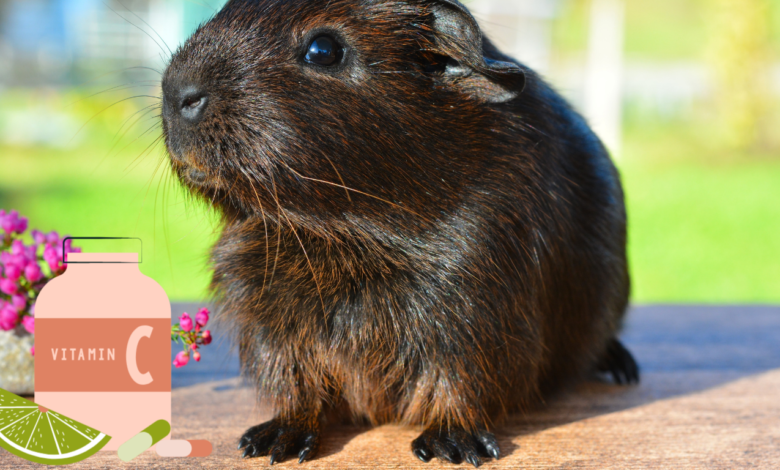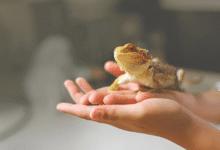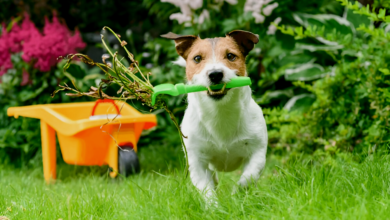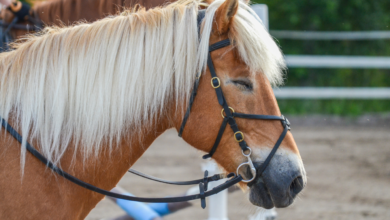
Vitamin C Deficiency in Guinea Pigs – PetCare Mag
Vitamin C, also known as ascorbic acid, is a nutrient. It has many functions in the organism, but collagen formation is its primary function. Most animals can produce their ascorbic acid, but humans, guinea pigs, and specific bat and primate species cannot. In these animals, vitamin C must be absorbed from their diet.
Vitamin C deficiency is the underlying cause of scurvy in humans. Although hypovitaminosis C is not commonly referred to as scurvy, it is a comparable condition that can affect guinea pigs. Due to their inability to form collagen appropriately, guinea pigs whose diet is deficient in vitamin C will experience a lackluster hair coat, poor wound repair, lethargy, and more.
Symptoms of Vitamin C Deficiency in Guinea Pigs
Common symptoms ranging from least to most severe:
- Rough, coarse, and/or patchy hair coat
- Depression
- Lethargy
- Poor appetite
- Wounds not healing on their own
- Poor or painful teeth
- Diarrhea (may be bloody)
- Weight loss/poor weight gain
- Low bone density potentially leading to fractures
- Bone pain and/or arthritis, possibly with swelling
- Sepsis (infection throughout the body/blood)
- Progressive paralysis
- Respiratory failure
- Birth defects
- Death
Causes of Vitamin C Deficiency in Guinea Pigs
An enzyme in the bodies of most animals converts sucrose into ascorbic acid, which is then used to produce collagen, an essential component of connective tissue. Guinea pigs lack this enzyme, but collagen formation still requires ascorbic acid. Therefore, they must obtain ascorbic acid through their diet.
Insufficient vitamin C Inguinal hernia in companion guinea pigs is typically caused by a lack of fresh produce, the absence of vitamin C treats, or stale diets/treats. Diets fortified with vitamin C for guinea pigs that are older than six months will not contain sufficient levels to meet daily requirements. It only takes two to three weeks of an inadequate diet for vitamin C deficiency to manifest.
How Vets Diagnose Vitamin C Deficiency in Guinea Pigs
- Physical exam: most common and can be considered confirmatory when paired with a comprehensive historyRadiographs (X-rays) are a form of medical imaging.
- Concentrations of serum ascorbic acid (a blood test to measure vitamin C levels)
In a typical animal practice, blood tests to measure vitamin C levels are uncommon, but veterinarians search for vitamin C levels greater than 22M when ordered.
Treatment of Vitamin C Deficiency in Guinea Pigs
In most cases, a deficiency in a guinea pig can be remedied by modifying its diet to meet its daily requirements. A robust adult guinea pig requires 10 mg/kg of vitamin C daily. Pigs that are maturing or pregnant need 30 mg/kg per day. This equates to approximately 20-25mg/day for most adult guinea pigs and 30-40mg/day for developing or pregnant guinea pigs. In more severe cases, a veterinarian can administer a vitamin C injection at the clinic, after which the diet must be adjusted.
Vitamin C can be supplemented with treats, fortified (juvenile and adult) diets, water additives, and raw fruits and vegetables. Remember that fortified treats/pellets will only contain sufficient vitamin C if they are under six months old, and some recommendations suggest using them within ninety days of their production date.
Additives in water are only effective for one day (or as little as eight hours) and must be replaced daily. With water additives, ensure that fresh, pure water is readily available so that pets do not risk dehydration if they do not drink the water containing additives.
Produce Rich in Vitamin C
Fresh produce is the most common way to supplement vitamin C for guinea pigs in addition to the abovementioned methods. These foods contain high levels of vitamin C and are appropriate for guinea pigs:
- Red peppers
- Kale
- Mustard greens
- Parsley
- Broccoli: all parts
- Cauliflower
- Strawberry
- Kiwi
- Green pepper
- Snap peas
- Red cabbage
- Orange
- Peas
- Clementines
- Cantaloupe
- Pineapple
Recovery and Management of Vitamin C Deficiency in Guinea Pigs
All guinea pigs must receive adequate vitamin C in their nutrition for their lives.
In most adult guinea pigs recovering from a vitamin C deficiency, dietary correction and maintenance result in a favorable prognosis with no long-term complications. For guinea pigs with dental modifications caused by a deficiency in vitamin C, dental disease will likely be a lifelong problem.
Young guinea pigs with vitamin C deficiency are more likely to develop severe birth defects and have poor prognoses. Cases of severe bone abnormalities, particularly in guinea pigs with fractures, may result in a lifetime of bone discomfort, arthritis, abnormal skeletal structure and posture, or abnormal gait. Even with these problems, they can lead relatively typical lives.
FAQs Related to Vitamin C Deficiency in Guinea Pigs
How do you fix vitamin C deficiency in guinea pigs?
Correct vitamin C deficiency by increasing the concentration of vitamin C in the diet. Normal vitamin C levels for an adult guinea pig are 10mg/kg/day, or approximately 20-25mg/day, whereas normal vitamin C levels for a developing or pregnant guinea pig are 30mg/kg/day, or about 30-40mg/day.
Can a guinea pig recover from vitamin C deficiency?
Yes. Most cases will recover with few or no long-term health complications, and only the most advanced chances are at risk for poor recovery or treatment failure.
What are the signs of scurvy in guinea pigs?
The most prevalent and early symptoms of scurvy in guinea pigs are a poor hair coat, a diminished capacity to heal or combat infection, a diminished appetite, weight loss, and lethargy. Dental disease, bone weakness, body pain, and bloody diarrhea are also prevalent symptoms.
How can I give my guinea pig more vitamin C?
There are many methods to accomplish this! You can feed guinea pigs a pelleted diet fortified with vitamin C, provide them with special vitamin C treats, add vitamin C to their water, and/or feed them high-vitamin C raw produce daily.







